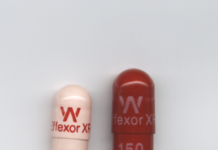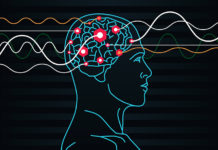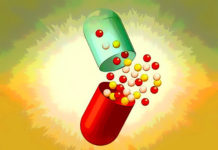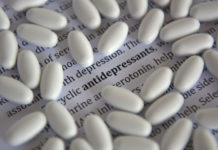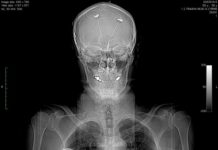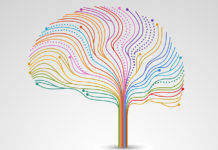How to Avoid Severe SSRI Withdrawal Symptoms?
After long-term use, most people are going to have serious symptoms when stopping SSRIs. Many people are going to have transient, mild to moderate difficulty and some are going to end up falling down the akathisia rabbit hole. That is a long, difficult drop.
Wendy Dolin – Making Akathisia a Household Word
An interview with Wendy Dolin who talks about the work of MISSD, the Medication-Induced Suicide Prevention and Education Foundation in Memory of Stewart Dolin, a non-profit founded to raise awareness of the tragic consequences of drug-induced akathisia.
How “Mental Health Awareness” Exploits Schoolchildren
Imagine being a parent at a meeting with educators to discuss Johnny's academics or behavior. Suddenly, your child’s teacher is telling you that he needs to see a doctor for an assessment of a suspected “mental disorder,” which usually leads to a prescription for medication. Warned of “the risks against failing to intervene,” you will likely acquiesce.
Spiritual Side Effects of Psychiatric Medication: From Helpful to Harmful
The larger narratives put forth by psychiatry and neuroscience often eclipse the equally important stories of lived experience. The easiest way to understand how people are engaging spiritually with their prescriptions is to hear it in their own words.
New Study Casts Doubt on Efficacy of Ketamine for Depression
A new study, published this month in the Journal of Affective Disorders, investigated the effectiveness of weekly intravenous ketamine injections as a treatment for...
Two Years Tapering an Antidepressant – A Life-Changing Experience That I Didn’t Want
My heart goes out to anyone experiencing withdrawal, but especially those who are so ill they can’t work and are struggling to navigate a heartless and cynical ‘benefits’ system. Their only crime is to have experienced difficulty from a prescribed treatment, yet they are treated as medical pariahs.
Researchers Search for Subgroups Where Antidepressants Are More Effective
The researchers theorized that this increased effectiveness was due not to “antidepressant” properties, but rather to the drug’s side effects, which include insomnia, drowsiness, and nausea.
New Data on the Adverse Effects of Meditation and Mindfulness
Study reports on the less-examined findings of difficult and painful meditation-related experiences.
Neurofeedback is Not For Everyone: The Dangers of Neurology
One thing I noticed, from the moment that I stepped out of my psychiatrist’s office, was how strangely blank and yet clear my mind was. I felt surprisingly calm and relaxed, and I decided to go back for another treatment the next week. What I couldn’t have known then was that after that next “treatment,” life would be completely destroyed for me.
Prescripticide: A Proposal for Action and a Request for Your Help
The primary factor protecting psychiatry’s unwarranted power and authority is that it is perceived as shielding society from folks who are believed to be dangerous. It would seem, then, that one logical step toward reducing society’s trust in biological psychiatry would be to reveal the evidence of a significant correlation between the use of prescribed psychoactive drugs and the commission of violent acts against oneself or others.
Antidepressant-Induced Mania: When My Mind Became a Literal Hell
The amount of anxiety I felt on these medications — and for a couple of years after — was unfathomable. I felt as though I was trapped in an air-tight vat, constantly gasping for breath. And my thoughts were guided by my state of constant worry and panic.
New Study Concludes that Antidepressants are “Largely Ineffective and Potentially Harmful”
A new study published in Frontiers in Psychiatry concludes that “antidepressants are largely ineffective and potentially harmful.”
How Big Pharma and the Medical Doctors Killed my Father
When the nurses tried to give him other medications, my father refused. They accused him of being “combative” and “uncooperative,” and they injected him with the highly toxic, incredibly dangerous, mind-bending antipsychotic HALDOL.
Does a Psychiatric Diagnosis Have the Impact of a Medical Curse?
Over and over I've seen the aftermath of that ritual of receiving and internalizing a lifelong, pathologizing diagnosis. I don't think we can underestimate the uncanny power of receiving such proclamations about our personhood by people sanctioned by our culture to serve as arbiters of truth.
Is Long-term Use of Benzodiazepines a Risk for Cancer?
A large study of the population in Taiwan reveals that long-term use of benzodiazepine drugs, commonly prescribed for anxiety, significantly increases the risk for brain, colorectal, and lung cancers. The research, published open-access in the journal Medicine, also identifies the types of benzodiazepines that carry the greatest cancer risk.
Adverse Effects: The Perils of Deep Brain Stimulation for Depression
Hundreds of people have been given remote control deep brain stimulation implants for psychiatric disorders such as depression, OCD and Tourette’s. Yet DBS specialists still have no clue about its mechanisms of action and research suggests its hefty health and safety risks far outweigh benefits.
Lithium May Cause Sexual Dysfunction — More Research Needed
Lithium appears to reduce libido and sexual function, and more research into the problem is needed.
Comments by Shock Survivors and Their Loved Ones
The #FDAStopTheShockDevice petition has received over 2,200 signatures and 800+ comments. A more thorough analysis of those comments is forthcoming, however, we wanted to offer a glimpse of what people shared. The sixth, seventh, and eighth most common words used in the comments submitted through the petition were "damage," "barbaric" and "torture." We must continue the fight to make sure that the FDA hears the people who will be adversely affected by the proposed rule if it becomes an order. There is still a small window of time for you to sign the petition and leave a comment to the FDA.
Stopping SSRI Antidepressants Can Cause Long, Intense Withdrawal Problems
In the first systematic review of withdrawal problems that patients experience when trying to get off SSRI antidepressant medications, researchers found that withdrawing from SSRIs was comparable to trying to quit addictive benzodiazepines.
Vitamin B6 Effective in Reducing Antipsychotic Induced Akathisia
A recent RCT showed that vitamin B6 is as effective as propranolol for the treatment of akathisia.
The Conflicts That Result From Globalizing Euro-American Psychology in India
Researchers examine the transformation of work, life, and identity in India as a result of Western corporate and psychological culture.
Psychiatrist Says: More Psychiatry Means More Shootings
Psychiatry not only increases the risk of violence by giving violence-inducing drugs, it lulls patients, families, professionals, schools and the public into an unrealistic and even disastrous sense of security. It's an irony of tragic proportions: Cruz was left unsupervised and free to buy a gun because he was faithfully taking psychiatric drugs that can cause violence.
Big Pharma Meets Big Diagnosis, Big Courts, and Big Psychiatric Hospitals
Gottstein’s book is The Pentagon Papers of the traditional mental health system, because he exposes a mind-blowing number and variety of cold-blooded, calculating actions on the part of Eli Lilly in trying to hide what it knew to be the devastating effects of its hugely profitable Zyprexa.
8 Years of Mental Health Research Distilled to 4 Infographics
Pictures are worth a thousand words. So I’ve chosen pictures to distill the mountain of mental health research I’ve examined over the last eight years. Three infographics summarize research on psychiatric drugs, and one asserts why I think Integrative Mental Health is the best path available for mental health recovery.
The Three Most Important Facts About Psychiatric Drugs
Psychologist and educator Michael Corrigan was a guest on my radio show and brought up some questions about how to communicate with people about psychiatric drugs. Specifically, he asked, “What are the three most important things for anyone to know about psychiatric drugs?” Here is my answer.







